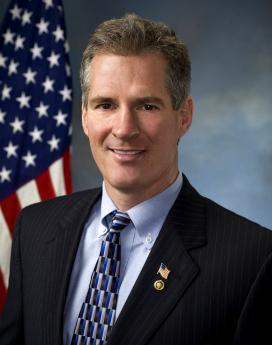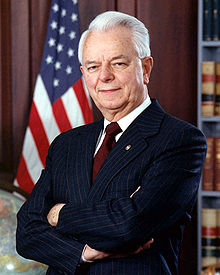Related Topics
No topics are associated with this blog
Strange Interlude
Once a bill is signed by the President after enactment by both houses of Congress, it is normal procedure for the Executive branch to devise regulations (with the force of law) to implement its intent. Commonly, this process uncovers unintentional flaws in the statute, which is then returned to Congress for "technical" amendments. When there is a politically divided government however, suspicions can be instinctive in the Supreme Court that regulations or technical amendments might be written to conflict with the original will of Congress. Before matters get to that point, however, differences between House and Senate versions must be reconciled, and then identical reconciliations must be agreed by both houses. In the case of the Affordable Care Act, widely differing versions between the two houses were tolerated or even encouraged, but the House version was withdrawn in order to jam through an identical version of the Senate bill in its place. This did avoid the need for reconciliation. However, the maneuver was so hurried it required more than average corner-cutting, and potentially had to accept some un-removable booby traps in the surviving Senate version.

|
| Republican Senator Scott Brown |
A situation of this complexity would be difficult under any circumstances. But the Senate required a supermajority of 60 to evade a filibuster of the reconciliation. The Democrats had a bare sixty, including some with deep reservations which could only be pacified by accepting unwelcome provisions. And, it included at least two Senators in poor health. Consequently, differing Obamacare bills had been passed while there was a safe Democratic majority in the House of Representatives, but only one-vote Democratic filibuster control in the Senate. Democratic Senator Edward Kennedy then died, and an elected Republican, Scott Brown, replaced him. With Democratic Senator Richard Byrd in poor health the original plan to cherry-pick a clever administration hybrid out of differing versions in front of the House-Senate conference committee, became unfeasible, if not dangerous. About the only option seemingly available to the Democratic floor leaders was to adopt one version or the other and then achieve consent for an identical bill from the other house. The Senate version was chosen to survive and be forced through the House in a matter of hours, even though almost no Congressman had read it; and this behavior was conducted under full television coverage by C-Span. Television viewers probably did not have enough information to understand why things were being handled so roughly, but it added to a public distaste for the brutal tactics they could readily observe the leadership had been applying. Although it has been useful to blame excessive partisanship for this mess, it would not be difficult to name a dozen majority leaders in the past who might have surmounted such difficulties with more instinctive ease.

|
| Democratic Senator Richard Byrd |
The Republicans were given no face-saving consideration in any of these matters and reacted with outrage. The obedient Democrats were humiliated by the public watching their abject subjugation. As one consequence, the November 2112 election administered a heavy defeat to the Democrats, while sending a large contingent of freshmen Republican Congressmen with what they considered to be a strong public mandate to disrupt or even repeal Obamacare. Most of these new Congressmen belonged to the "Tea Party", had little experience with the "inside baseball" of Congress, and found they disliked the environment. Many of them had the inclination to repeal this one Act, followed by resigning from Congress after a single two-year term. Their fury at discovering the legislative straight-jacket they were in, must have contributed greatly to the polarization which was already notable. Naturally, the White House bureaucrats destined to write the Obamacare regulations were watching, dismayed by the prospect of claiming controversial opinions to be the "will of Congress". At this writing, it seems likely at least some regulations will come under consideration by the U.S. Supreme Court, for failing to follow the intent of Congress, for following an unconstitutional intent, or for failing to implement statutory sections of the law at all. Therefore, it would not be surprising to find some regulations which were then written, contained some "booby traps" for the Supreme Court. All of this would seem to predict epic contests between Chief Justice Roberts and President Obama, both of them constitutional strategists.
Meanwhile, many Republicans and some Democrats are calling for the President to postpone implementation, ostensibly until the enrollment computers are fully functional, but really hoping to get past the November 2014 elections. The approaching State of the Union address might have been an opportunity to blow the trumpet of compromise. But Barack Obama has proved to be an unusually stubborn person, and the prospect of facing an opposition majority in Congress does not seem to bother him. If he chooses to tough it out, perhaps we can finally learn exactly what he had in mind for the Law. If it is of any consequence to him, he had managed to get this far without fully revealing what he was trying to achieve. Almost before Senators Kennedy and Byrd died, the Tea Party gained control of the House, and Obama was forced to work his own way out of a hodge-podge.
A major tactical part of this strange interlude grew out of what lawyers and courts call "Standing". The Supreme Court, in particular, is rigid in refusing to hear a case where no one has been injured. Anxious to avoid hypothetical arguments more properly the province of the Legislative Branch, the Court insists on hearing real cases of injury by one party against another. When a new law has not yet been completely implemented, there is likely to be an interval when no one can claim he has been injured by it. That is, no one at all has "Standing". As we will see in a minute, various state governments took the position that the law injured them by invading what the Constitution declared was the province of the several states. And therefore, the states had been injured by the law, even though no insurance policies had been issued. It will be noted the Court's decision in the case confined itself to this argument. Obviously, it reserves the right to take up the case a second time, after millions of people acquire standing, and the Court can choose which argument, by which person with Standing, it chooses to hear.
Originally published: Saturday, December 21, 2013; most-recently modified: Wednesday, June 05, 2019